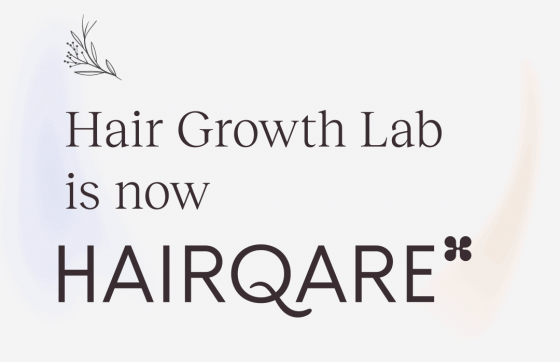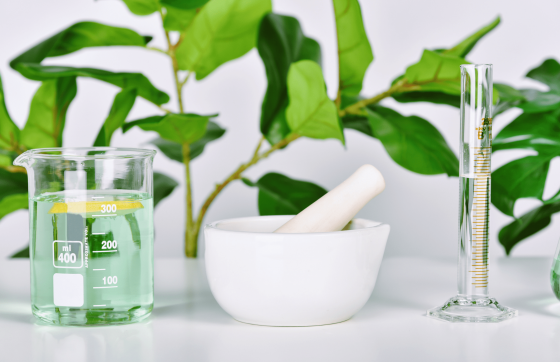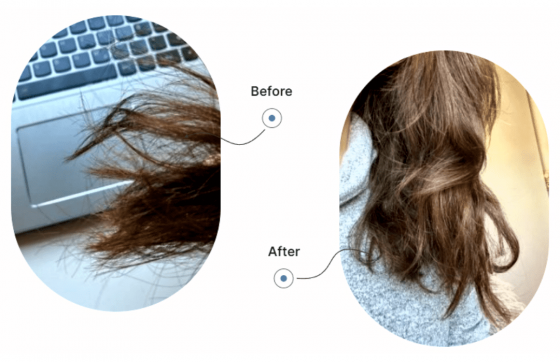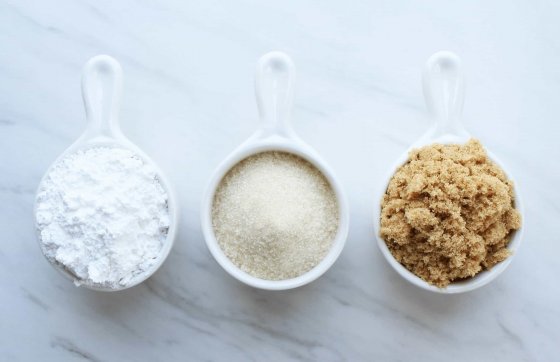
Hair Growth Pills That Actually Work in 2023 (Scientifically Proven)

Table of contents
'I'll grow your hair.'
'No, I'll grow your hair!'
'I stop hair loss.'
'And I stop hair thinning.'
'I've got an expensive price tag. I'm the best.'
'She's a waste of money. I'M the best.'
'Pick me, pick me, pick me!'
And my head just exploded. I can't decide what hair supplements I need, let alone which ones actually work. So I slam my computer shut and buy nothing, or I purchase multiple hair supplements and realize I've just spent $100.

Over 90% of the £100+ billion supplement industry is nothing more than a placebo.
Mind blow. 90%?! Surely not. Am I wasting my money? Why can't someone tell me, do they work or don't they? If they do, which ones do I choose, and how do I know if they're right for me?! I'll be going through some of the most widely sold hair health supplements and backing everything with science to help your hair grow. The article will cover:
- Biotin
- Keratin
- Collagen
- Vitamin B Complex
- Vitamin A, C, and E
- Iron
- Vitamin D
- Fish Oil

Let's get to it.
Do keratin supplements work?
Keratin is a protein that makes up about 95% of your hair. It’s difficult to find scientifically backed up studies on whether keratin supplements work. In short, yes, they do. But you must get the correct ones. What do I mean by that?
A 2014 study that gave participants Cynatine HNS (a Solubilized Keratin) found a significant improvement in hair growth after 90 days. You might be thinking, great! Where do I get this Cynatine HNS?
I had a look, and the first company I found was LYMA, which sells products based on scientifically backed, peer-reviewed evidence. However, I was reeling at the price of their supplements: $269 PER MONTH. Yikes. Whereas other companies do sell Cynatine HNS, you need to ensure they are regulated, and unfortunately, many companies are not.
However, all is not lost. You can still naturally increase keratin in your body. Keratin is a protein, so include foods that encourage keratin production to reduce hair loss.
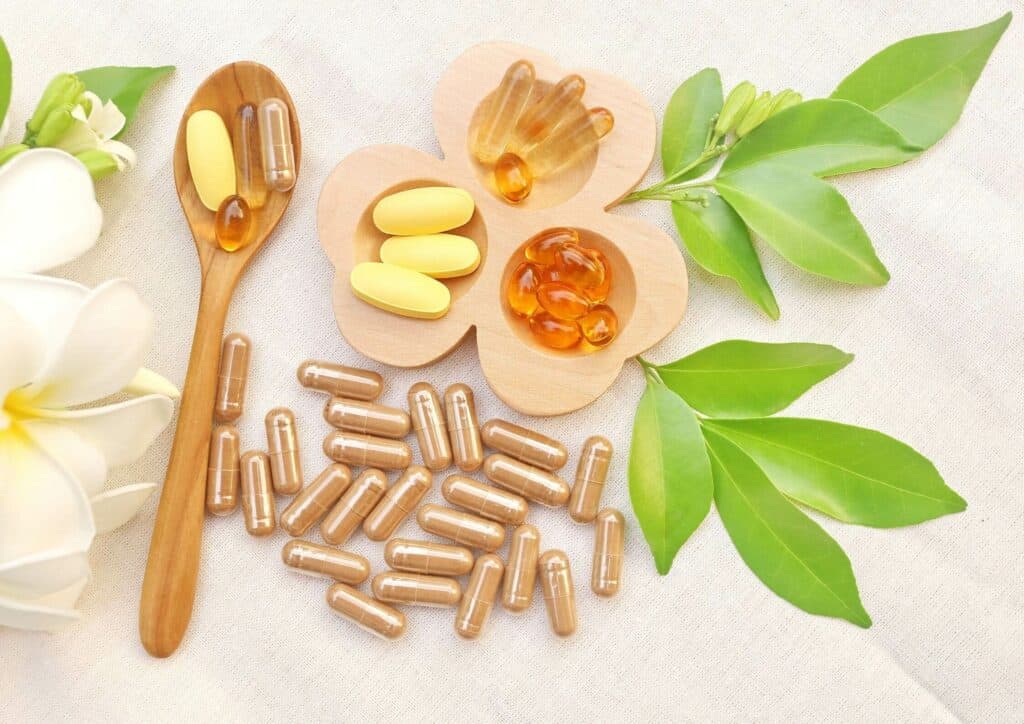
Do biotin supplements work?
Biotin supplements are exploding in the hair care industry, but is the buzz worth the biotin?
A 2017 study found that 18 young children with disorders that cause a biotin deficiency did benefit from taking biotin supplements. However, adults rarely lack biotin, and there is no definitive scientific evidence that they work for the general population. Biotin in large quantities has also been shown to cause acne.
Unless you have a medical diagnosis confirming biotin deficiency, you're better off saving your pennies and buying eggs, a great source of biotin. You'll also get a double whammy and increase your keratin production. The 14 Day Haircare Challenge helps you build a meal plan tailored to your personal nutritional needs.

Do collagen supplements work?
Collagen helps the production of keratin (the protein in your hair). When it comes to collagen supplements, studies and articles are careful with their wording, saying, 'It may help grow healthy hair, it may improve hair skin and nails.' In short, 'it may' means: there is no hard evidence collagen does anything, so take it if you want to jump on the hype.
A limited study found that women taking supplements containing collagen saw an improvement in their hair growth after six months. However, the supplements also included herbs, and the collagen supplier funded the study, so take it with a pinch of salt.
Despite studies being inconclusive, you still need collagen in your diet. During the 14 Day Haircare Challenge, we dedicate one mission to optimizing your protein intake for keratin and collagen production.

Does vitamin B-complex work?
There are eight B vitamins in total. Biotin is a 'B' vitamin, but as you can see, there's not enough evidence that supplementing biotin works.
When you type into Google, 'do vitamin B supplements support healthy hair growth and strengthen hair?' results show that vitamin B works. However, it fails to mention if it works in supplement form.
The majority of hair growth supplements are all hype and have no hair.
Not many studies confirm the effects of taking a complex vitamin B supplement and hair loss, mainly because people acquire enough through their diet. However, B supplements contain folic acid, which is essential if you are vegan, vegetarian, or don't have a nutrient-dense diet.
Take a vitamin B complex to give your body an extra boost, but it's not a miracle worker, so use it in combination with vitamin b rich foods.

Do vitamin A, vitamin C, and vitamin E work?
Taking the incorrect amounts of supplements can do more harm than good. High levels of vitamin A and C are toxic and can cause hair loss and alopecia. You are better off getting your vitamin A and C through foods for the best hair.
Tocotrienol, a form of vitamin E, shows an increase in the number of hairs in participants suffering from hair loss. However, most drug stores that sell vitamin E do not contain Tocotrienol, so make sure you buy a supplement that does.
What about iron?
Mineral supplementation (such as iron) is very complex. People are often diagnosed with iron deficiencies when they actually lack copper. When minerals are supplemented incorrectly they can inhibit one another. For example, too much iron can cause a copper deficiency.
There is no scientific evidence to support the correlation between lack of iron and hair loss. In fact, high iron levels can induce hair loss. Unless you have a diagnosis, it's best to get your iron from dark leafy greens or from grass-fed and finished red meat.
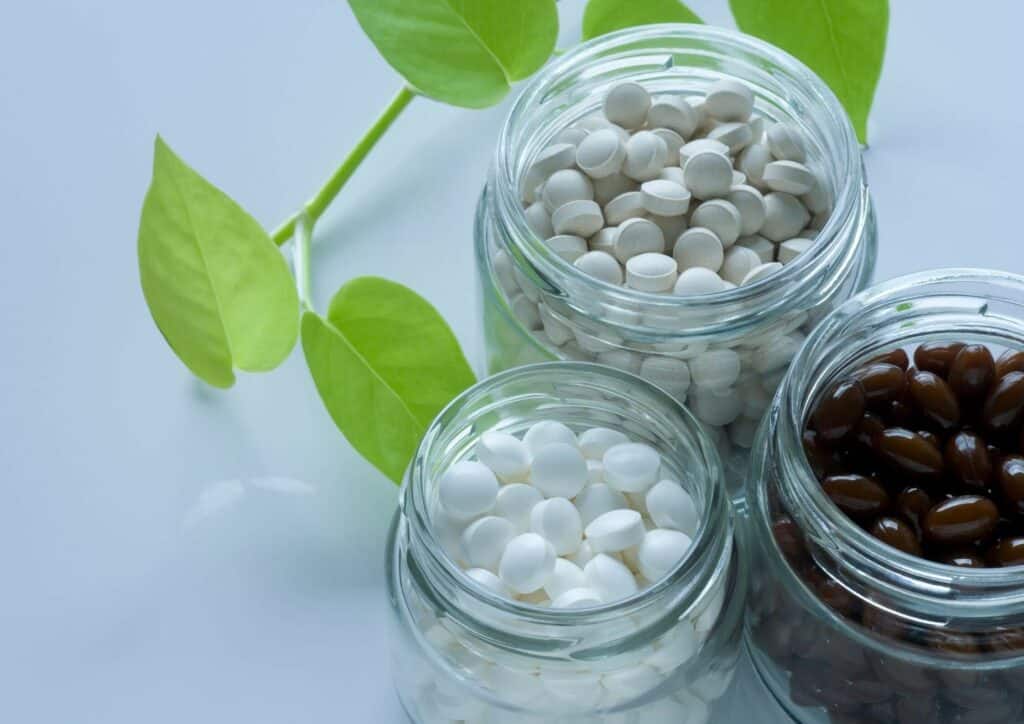
Mineral supplementation is hard and you need to be careful to not ruin your hair trying to help it. The 14 Day Haircare Challenge has a lesson on how minerals affect one another and a quiz to discover if you have a nutritional deficiency.
The best supplements to increase hair growth.
So I've told you about the supplements to steer clear of. What about the ones that work? Be patient, my friend. I've got you covered.
Does fish oil work?
Fish oil contains omega-3 and omega 6 for healthy hair. Results from a 2016 study show that women taking omega 3&6 supplements, along with antioxidants, lengthen the time hair stays in the anagen (hair growth) stage. After six months, 89.9% of participants saw a reduction in hair loss. It could promote hair growth, but bear in mind the science is limiting.

Does vitamin D work?
Finally, we have a winner! Arielle Levitan, an internal medicine physician, comments that a vitamin D deficiency is one of the 'common causes of thinning hair or hair loss.' Levitan also mentions that 'most people are deficient.'
A 2016 study notes that vitamin D is critical in hair follicles, as an inadequate amount 'leads to defective stem cell renewal and loss of hair follicle cycle.'
It's challenging to get enough through food alone so a supplement will increase your levels. You mustn't exceed the daily dose (4,000 IU per day is the safe upper limit).
However, it’s possible to over supplement and causes damage. It’s safer to get your vitamin D from the sun so your body can regulate the intake and only supplement if you live somewhere with little to no sun.
But as most of us know, everything is good but in moderation, so having too much exposure to the sun can cause hair loss.

Do pills for hair growth work?
Vitamin D and Omega 3&6 show promising signs. However, the rest have minimal evidence. The best way to get the right nutrients in the most bioavailable form is through your diet.
That's why students in the 14 Day Haircare Challenge learn how to identify their individual body's nutritional requirements to build their own hair health meal plan. Join now to grow longer, stronger, and healthier hair.
What hair growth pills work best?
Vitamins are scientifically proven to aid hair growth:
- Vitamin D (when absorbed with a fatty meal)
- Omega 3&6 (fish oil) when taken with antioxidants

Other supplements may or may not help to depend on the individual person. To get this right you need to identify which nutrients you're deficient in. The best way is through a blood test done by your GP. There are also DNA tests that can help you identify which deficiencies you're typically prone to.
If draining your blood isn’t up your street then take a quick deficiency test before continuing any supplementation. A really easy way to do this is through our deficiency test on Day 7 of the 14 Day Haircare Challenge.
Our students report that the results line up quite closely with the outcome of any blood tests they've taken at a later date.

What pills make your hair grow thicker and faster?
Omega 3&6 (fish oil) when taken with antioxidants has evidence to show that it may reduce hair loss and keep hair in the hair growth phase.
'Hair growth' supplements don't work, but some vitamins do.
Most of the best hair growth vitamins come from your diet if you want healthy hair. If you're going to take hair-improving pills, vitamin D and fish oil (with antioxidants) are the way to go.



